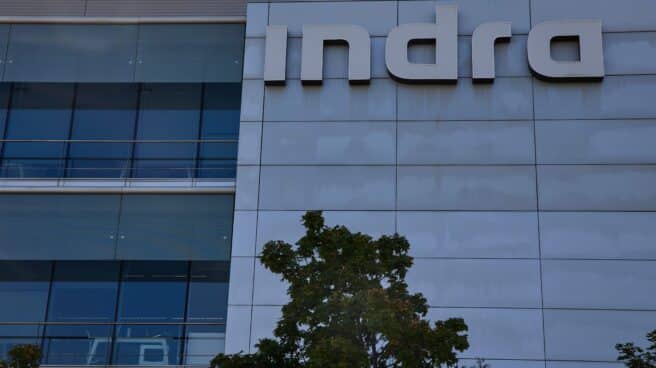

Facade of the Indra headquarters in Madrid.
The board of the National Securities Market Commission (CNMV) unanimously agreed to close the proceedings, which began at the Indra meeting last June, after assessing that there were no “sufficient indications” of concerted action to gain control of the company.
This decision, he explains, is made without prejudice to a possible reopening of the investigation “in the light of possible new facts arising from future changes in Indra’s shareholder composition, management and decision-making.”
Considering the unusual nature of the case and the public nature of one of the shareholders (SEPI), the president of CNMV will convey to the Congressional Economic Affairs Commission his willingness to appear, if said Commission considers it appropriate, to explain the circumstances and grounds on which the body’s decision was based.
According to CNMV, the investigation “proved that the shareholders of SEPI, SAPA and Amber ‘cooperated in pursuing the layoffs’ at Indra, ‘with the active participation of the president of Indra’, with whom several of the dismissed directors have maintained ongoing disagreements over management issues since their appointments.
However, the body clarifies that, even if such cooperation exists, “there is currently no sufficient indication to consider said agreement as a concerted effort to control Indra’s leadership.”
In addition, CNMV believes that there is “no evidence” that there have been changes to most of Indra’s boards of directors, regardless of the appointment of owner-directors as a result of subsequent acquisitions of two of the three shareholders.
The analysis, he stresses, does not lead to the conclusion that none of the three shareholders achieved a controlling stake by appointing directors to Indra.
With regard to possible violation of the corporate governance provisions contained in the Capital Companies Act (LSC) or non-compliance with CBG recommendations, CNMV “does not identify the specific rules that were violated.”
The result of the investigation lifts the shadow that the watchdog forced the companies to launch a public takeover offer (OPA) for all of the technology company’s capital.
The facts under investigation date back to the end of July, when, at the request of the investment fund Amber Capital, a proposal was put forward at the general meeting of shareholders of Indra to dismiss four independent directors. This resulted in the non-renewal of the fifth director, also against these shareholders.
The situation created a crisis of governance, which was finally resolved with the election of a new independent party that balances the proportion with private representatives in the body and the resignation of the president with a decisive vote.
“Completely far from the standards expected of a listed company”
While this does not conflict with current regulations governing the power of the shareholders’ meeting to fire directors, “this episode is a far cry from the standards expected of a listed company,” CNMV said in a statement.
In this sense, the CNMV will propose legislative measures and amend its corporate governance recommendations so that “the repetition of such episodes does not undermine the soundness of the corporate governance of Spanish listed companies.”
Source: El Independiente